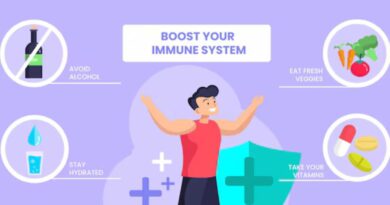Myriad Womens Health
Myriad Women’s Health: The Broad Spectrum of Women’s Health Issues
One of the most pervasive aspects of women’s physical, emotional, and social well-being is their health. Myriad developments in healthcare have changed the way womens health is understood. From reproductive health concerns to chronic conditions and mental health disorders, this encompasses everything. The following are issues that women need to be aware of for improved health outcomes and better living standards. The following are ten key issues concerning the myriad health of women, their insights, and tips on maintaining good health.
Reproductive Health
Reproductive health is an important area of women’s health. It encompasses various factors, including menstrual health, fertility, pregnancy, and menopause. Every woman should understand her reproductive system well to take proper decisions on family planning and also to overcome problems related to reproductive health. Women should visit their health care providers for regular check-ups and screenings that will enable them to discover problems early.
“Reproductive Health: Need to Know Information about Elite Women’s Health: Imminent Information Empowers Women to Make the Right Health Decisions in a Lifetime.
Key Learnings:
- Annual gynecological check-up is very important.
- Keep updating yourself with different contraception methods.
- Know the warning signs of problems in reproductive health.
Menstrual Health
Menstrual health is the physical as well as emotional health condition of women during the time of menstruation. Most symptoms that come with menstruation include pain, mood swings, and weakness. More knowledge about the symptoms would give one better control over dealing with the symptoms. To identify a pattern, they should follow their cycles so that they can seek assistance from medical practitioners if some symptoms cause them to fall out of their daily activity.
Important Points:
- Follow your cycle to know much about it.
- Seek help over serious symptoms of menstruation.
- Lifestyle, like proper care to alleviate symptoms.
Pregnancy and Prenatal Care
Pregnancy is one of the events of life that needs overall attention. Prenatal care can be very important, as the monitoring of the mother and her baby’s health has a great impact. Continuous antenatal visitations, a well-balanced diet, and steering away from harmful substances enhance health conditions during pregnancy. There should be awareness concerning prenatal vitamins and vaccination. Such awareness will have improved the results for their infants.
Key Points:
- Visit all your appointments for prenatal care.
- Eat a healthy diet full of vitamins.
- Do not smoke, and avoid alcohol consumption when pregnant.
Management of Menopause
Menopause is a biological aspect that occurs in all females. It occurs when they are between 45 and 55 years old. The symptoms that result may be challenging to live with, such as hot flashes, night sweats, and mood swings. Females should discuss management techniques with their health care providers, including hormone replacement therapy and lifestyle changes, which can help minimize the occurrence of symptoms.
Key Points:
- Understand menopause.
- Develop a lifestyle that helps reduce the incidence of symptoms.
- Seek advice from a health care provider about treatment.
Heart Health
The primary cause of death for women is heart disease. Some of the risk factors include high blood pressure, high cholesterol, and even lifestyle factors. Regular check-ups with a healthcare provider, adherence to a heart-healthy diet, and being physically active go a long way to keeping your heart healthy. Women should also learn about heart disease, including symptoms that differ in women.
Key Points:
- Get routine heart health checks.
- Maintain a healthy diet and work out.
- Be cognizant of the symptoms of heart disease.
Mental Health

Mental health is as important as physical health. Women have specific stressors, such as hormonal changes, societal pressure, and caregiving roles. Maintaining mental well-being should be done through self-care, therapy, and support systems. Signs of anxiety and depression can be caught before it gets worse.
Key Points:
- Practice self-care habits often.
- Seek professional help when needed.
- Build a good social network.
Breast Health
To maintain breast health, proper checkups and changes of the breast tissue are expected. A woman should give herself a monthly self-exam and get mammograms as recommended. The earliest detection of breast cancer raises the possibility of treating this disease. To determine your risk, your family history may also be helpful.
Must Know:
- Monthly breast self-exams must be done.
- Mammograms by age and risk.
- Discuss your family history with your doctor.
Bone Health
Bone health is crucial, especially during the later years of life when women are at risk of osteoporosis. A diet rich in calcium and vitamin D, combined with regular weight-bearing exercises, will help maintain strong bones. Women should also undergo bone density tests, especially after menopause.
Key Points:
- Include vitamin D and calcium in your diet.
- Regularly engage in weight-bearing exercises.
- Get screened for osteoporosis risk factors.
Sexual Health
Sexual health is part of comprehensive health. It encompasses safe, consental, and responsible sexual practices. A female should be educated about how she can discuss her sexual health with her sexual partners and even her physician or healthcare provider about what knowledge she needs to obtain as soon as possible about STIs and contraception.
Take-Aways
- Safe sex practice helps reduce the transmission of STIs.
- Dialogue with sexual partners on any sexual health issue.
- Routine STIs examination.
Preventive Care
Preventive care is the key to staying healthy and preventing diseases. It includes regular screenings, vaccinations, and health check-ups to detect problems before they become serious. A woman should know which age-related and risk factor preventive services are recommended to them, which will enable them to manage their health proactively.
Key Points
- Schedule annual health check-ups.
- Stay updated on vaccinations.
- Discuss preventive screenings with your doctor.
Conclusion
From that perspective, it has become a vast issue when it comes to women, involving various ranges of discussions and debates ranging from a simple reproductive issue to that of mental wellbeing. Ensuring that one gives health proper attention and making sure of up-to-date information may be useful for taking proper control of one’s own health. The key reminders are summarized as follows.
- Regular Check-ups: Scheduled visits to providers for appropriate screenings and evaluation to have early detection for any kind of potential conditions.
- Healthy Lifestyle Habits: Healthy diet, regular exercise, and maintenance of mental health.
- Education/awareness: Learn about various health topics—from reproductive health, menopause, and heart diseases—making informed choices about your health.
- Open Communication: Discuss concerns with your providers and mental-emotional support from others.
- Preventive Care: Focus preventive care through vaccinations and screenings to prevent chronic diseases, thus ensuring long-term health.
Through these aspects of health, women can face the challenges of their health with confidence and resilience. Embracing the principles of myriad women’s health can lead to a brighter, healthier future.
Frequently Asked Questions (FAQs)
Why is a regular gynecological checkup important?
The frequent check-ups are vital because women can be detected with cervical cancer and STIs before they become critical health issues. This is the time that enables women to discuss issues and get vaccinated and their reproductive health checked.
How should I manage symptoms of menopause?
Some of the symptoms can be managed by lifestyle changes such as diet and exercise, while other medical treatments are hormone replacement therapy. I also need to seek a healthcare provider’s help in making a decision on which is best suited for me.
What are heart attack symptoms in women?
Women may present with different symptoms of a heart attack, like fatigue, nausea, shortness of breath, and discomfort in the back or jaw. This is for identifying these symptoms for quick medical care.
Why is mental health important for women?
Relationships, functioning, and physical health are all impacted by mental health, which promotes general well-being. Women have unique stressors; thus, self-care and support for mental health are very essential.
How can I take care of my bones?
Integrate a diet rich in calcium and vitamin D, with an emphasis on weight-bearing activities, and avoid smoking and heavy alcohol use. A series of screenings for osteoporosis is also recommended in adulthood, especially after the end of menopause.




